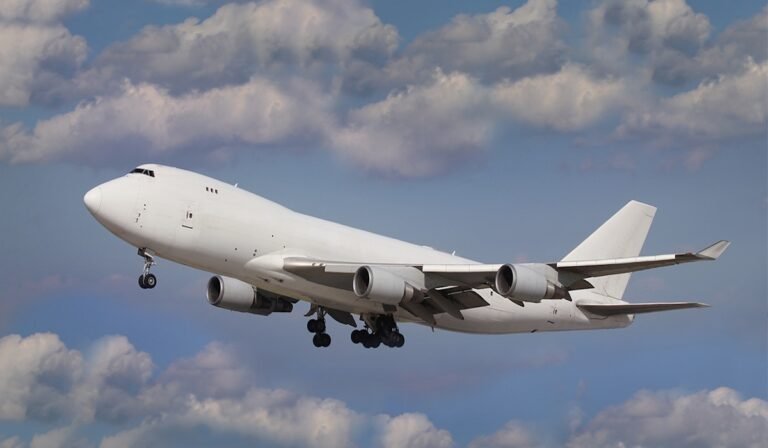The release of the 20-year freighter forecast for 2024 has provided insights into the trajectory of the air cargo industry, with a particular focus on the widebody segment. As global e-commerce is projected to grow by 38 percent over the next 5 years, reaching US$8 trillion by 2028, we explore the implications of the forecast, including the future of widebody freighters without the iconic Boeing 747, the momentum of next-generation (NG) aircraft, and the implications for regional fleets.
China, the US, the EU, the UK and Japan are believed to be the market leaders in the e-commerce domain, with trade values aggregating at US$3,021 billion, US$1164 billion, US$636 billion, US$195 billion and US$194 billion respectively.
As the industry is showing an upward trend of 3.4% per year growth rate in global air cargo over the next 10 years, it is evident that the upcoming years are poised to realign the freighter carriers with fleet development and expansion plans. The evolution of the freighter fleet has grown by two percent on average on medium rage wide-body aircraft, with future growth expected to scale between one to two percent year on year.
747-less sector
One of the most significant revelations of the 20-year freighter forecast is the projection of a widebody segment without the presence of the legendary Boeing 747. Once considered the undisputed king of the skies, the 747’s decline in freighter operations is expected to continue as operators transition to more fuel-efficient and technologically advanced alternatives. Along with this, Boeing 767 conversions are slowing down.
While the 747 will always hold a special place in aviation history, its diminishing role in the freighter market underscores the industry’s shift towards modernisation and sustainability. Operators are increasingly turning to newer widebody models that offer improved fuel efficiency, greater payload capacity, and enhanced operational flexibility to meet the evolving demands of air cargo transportation.
Gauging NG momentum, the 20-year freighter forecast also sheds light on the next-generation (NG) aircraft, particularly in the widebody segment. NG models, such as the Boeing 777X and Airbus A350, are poised to play a pivotal role in shaping the future of air cargo transportation, offering advanced features and capabilities.
These NG aircraft boast cutting-edge technologies, including lightweight composite materials, fuel-efficient engines, and advanced avionics systems, resulting in lower operating costs and reduced environmental impact. As such, they are increasingly favoured by cargo operators seeking to optimise their fleets for long-haul operations while maximising profitability and sustainability.
Regional fleet implications
The 20-year freighter forecast also highlights the implications for regional fleets, particularly in Asia and other emerging markets. While widebody aircraft dominate long-haul cargo routes, regional carriers are expected to play an increasingly significant role in feeding cargo traffic to major hubs and facilitating last-mile deliveries.
Given the boost in the traffic trends in the post-pandemic era, the feeder segment has shown to play a pivotal role in the region, with ATRs and Embraer E190F dominating that side of the market.
Regional freighter fleets are likely to consist of narrowbody aircraft, such as the Boeing 737NG and Airbus A320 family, which offer agility, versatility, and cost-effectiveness for short to medium-haul operations. These aircraft are well-suited to serve growing e-commerce markets, support express delivery services, and connect remote regions to global trade networks.
The crisis in the Middle East and the blockage of traditional Red Sea trade routes have not posed any immediate threat to the cargo industry, thus boosting the trade values beyond expectation. Furthermore, jet fuel costs have seen a downward trend of one percent since 2023, despite taking a sharp surge in Q4 2023, which has not affected the air cargo industry to a significant degree.



